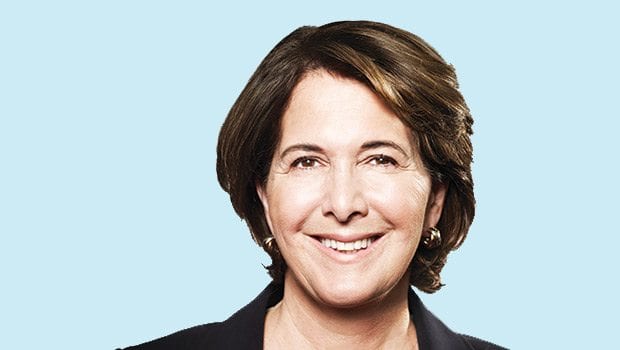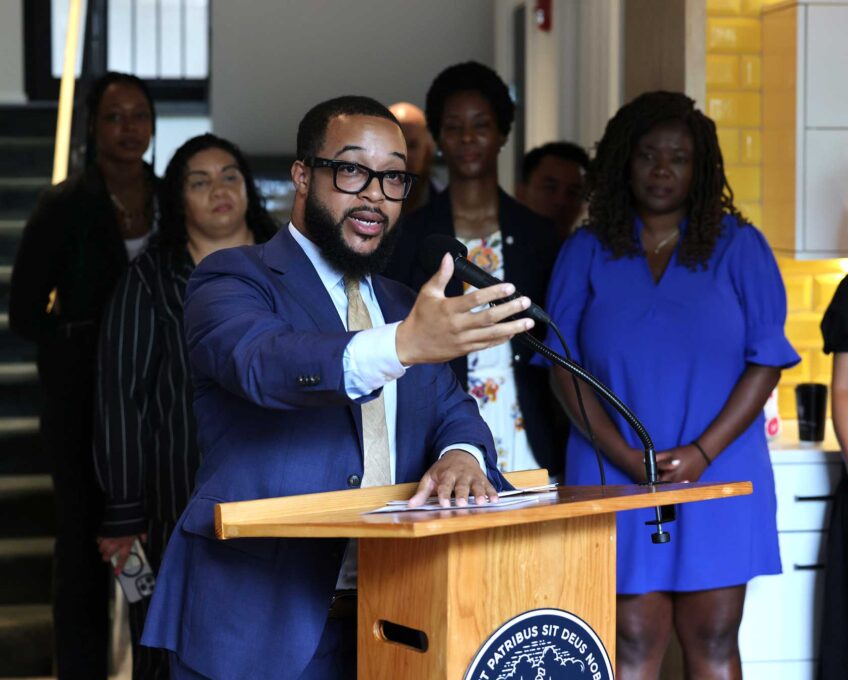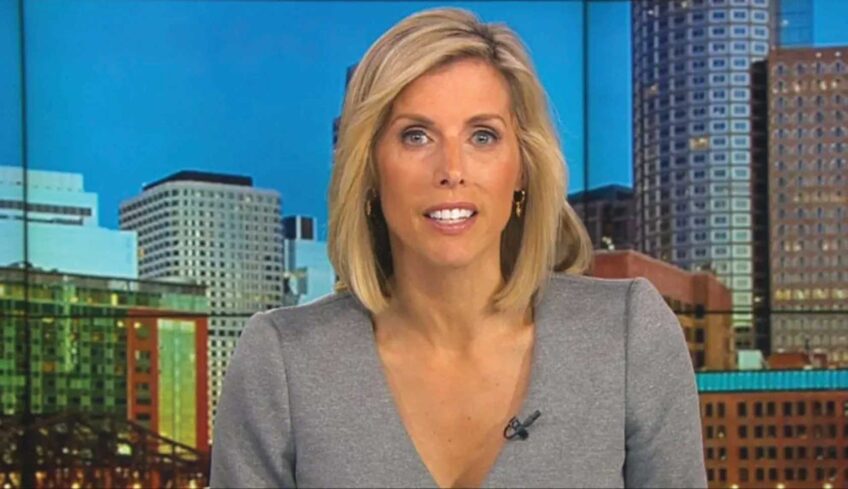Capitalism for the common good
Amy Domini — The queen of ethical investing

Amy Domini is the queen of ethical investing, part of a founding generation of investment professionals who have redefined the face of finance. No longer considered marginal or “niche,” the idea of an environmental, social, and governance (ESG) impact of investments has its roots in the early 1970s. ESG integration by money managers has exploded in the last few years, and now comprises $4.74 trillion in U.S. domiciled assets, according to the latest trends report issued by the US SIF Foundation.
“I think it’s important for Banner readers to understand that the modern era of responsible investing began over this issue of the equity gap,” Amy Domini recently stated, referring to the late 1960s era of urban ferment and civil rights and not the current concern for equity disparity. “One religious organization — the Episcopal Church of America — created what they called their ghetto seed loan fund, which was given the mission of financing either black owned businesses, or businesses there to serve blacks,” she said.
Back then nobody outside of church investors and a handful of wealthy individuals was taking seriously the idea of integrating ethical and social policy considerations into investment decision-making. Issues of war and peace, racial unrest, environmental degradation, poverty, and urban development dominated public discourse.
Key Resources on Ethical Investing, Corporate Social Responsibility
Global
Global Reporting Initiative (GRI): www.globalreporting.org
International Integrated Reporting Council (IIRC): http://integratedreporting.org
United Nations Environment Programme Finance Initiative (UNEP FI): www.unepfi.org
United Nations Global Compact (UNGC): www.unglobalcompact.org
United Nations Principles for Responsible Investment (PRI): www.unpri.org
United Nations Sustainable Development Goals (SDGs): www.un.org/sustainabledevelopment/sustainable-development-goals
National
Business for Social Responsibility (BSR): www.bsr.org
Ceres: www.ceres.org
Interfaith Center on Corporate Responsibility (ICCR): www.iccr.org
Investor Responsibility Research Center (IRRC) Institute: http://irrcinstitute.org
Sustainable Investments Institute (Si2): www.siinstitute.org
Sustainability Accounting Standards Board: www.sasb.org
The Forum for Sustainable and Responsible Investment (USSIF): www.ussif.org
Genesis: Racial justice & community well-being
Indeed, the late ’60s urban riots were the crucible from which both corporate social responsibility and the socially responsible investment movement were forged: insurance companies realized the risk of doing business was too high unless they played a more active, constructive role in community affairs. And activism on the part of religious investors (better known today as the Interfaith Center on Corporate Responsibility, or ICCR) led to the appointment of the first African American to a major U.S. corporate board: Rev. Leon H. Sullivan, a Philadelphia civil right and self-help activist, joined the GM board in 1971, thanks to the efforts of a movement called Campaign GM, with the Episcopal Church leading the way.
Building equity: Diversity, jobs & growth
Amy Domini began changing the face of finance when she realized it was all male and pale. First as a stockbroker and then as an author, trustee and co-founder of two major companies — not to mention her numerous board affiliations and honors, including honorary degrees and designation as one of Time Magazine’s 100 world’s most influential people in 2005 — Amy Domini literally and figuratively wrote the book on ethical investing. The book, “Ethical Investing,” was co-written with Peter Kinder and published in 1984.
That, and issues of peace and justice as well as the environment, led her down a path of discovery that, more than 30 years later, has produced change in how people think about the purpose of investing. It also has kept her at the forefront of public attention, largely due to the mutual fund company that bears her name — Domini Social Investments. Launched in 1991, Domini Social Investments LLC is a woman-owned and managed SEC registered investment adviser that manages $1.6 billion in socially responsible invested assets. The Domini firm and a handful of others pioneered what now is a vast and sprawling infrastructure that could help close the equity gap, fight climate change and turn ailing communities around.
One of the ways they do this is through filing company shareholder resolutions and engaging in corporate dialogue on matters of concern, particularly regarding corporate political contributions and diversity. Indeed, corporate diversity is a consistent thread that harkens back to the days of Campaign GM and Leon Sullivan’s board appointment.
After the South Africa divestiture campaign wound down, activist investors started turning their attention back here to the U.S., again tackling racial disparities — and encountering more resistance along the way. “We started asking companies who was in charge, and what their racial identities were,” Domini recalled. “And introducing the concept that, for instance, if you sell to people of all races and genders — and maybe all sexual orientations — you needed leadership from the communities you sold to. These were much more controversial and kind of inflammatory than you would have ever suspected.
The issue of diversity is growing. Nine percent of all 2015 shareholder resolutions filed on ESG issues were about workplace and board diversity. “So it is also possible, through the shareholder process, to do something about a few elite minorities with excellent educations and backgrounds. They can be placed in positions of leadership through the shareholders asking for the company to really look for them,” Domini said.
Green jobs
In addition to diversity, Domini pointed out that access to good jobs in clean energy provides a huge and untapped local opportunity.
“I think the green jobs initiatives have been a little underpublicized,” Domini observed. “The nice thing about retrofitting a house to have solar panels on the roof, or a green roof, or more efficient storm window system, is that that job cannot go to China. That job stays right here.”
Even as the industry she helped build continues to grow, Domini still prefers to use the term ethical investing. “I am not ashamed to say that if you are not an ethical investor, you are an unethical investor. Because the investor has the ability to push these issues. And a subset of investors has been using that ability to great success, around the world.”






